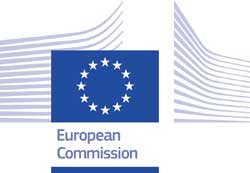European merchants could see their costs to accept Visa Inc. and Mastercard Inc. payment cards issued outside of Europe decline by 40% under separate proposals submitted by the two leading card networks to settle competition concerns raised by European Union antitrust authorities.
The European Commission, the administrative arm of the Brussels, Belgium-based EU, announced Tuesday that it is taking comments on separate proposals by Visa and Mastercard to cap so-called interregional multilateral interchange fees, also known as MIFs, at 0.2% and 0.3% of the value of debit and credit point-of-sale transactions, respectively.
The networks also are committing to cap card-not-present interchange rates at 1.15% for debit card transactions and 1.50% for credit cards, the Commission said. In all, the changes would reduce interregional interchange fees by more than 40%, according to the Commission.
Interregional rates apply to transactions in the 31 countries of the European Economic Area (currently still including the United Kingdom) initiated on cards issued outside the EAA, for example, an American tourist’s U.S.-issued credit card used at a Berlin hotel.

Should the Commission approve the networks’ proposals, the interregional point-of-sale rates would become the same as intraregional rates approved as a result of European Commission challenges to interchange rates that began in 2007.
The interregional reductions would be effective for 5.5 years and monitored by a trustee. The networks must publish interchange rates “in a clearly visible manner” on their Web sites, according to the EC. “If a company breaks such commitments, the Commission can impose a fine of up to 10% of the company’s worldwide turnover [volume], without having to prove an infringement of the EU antitrust rules,” the Commission said.
In a regulatory filing Mastercard said “the company took this action in order to avoid prolonged litigation and to gain certainty concerning its business practices.” A Visa spokesperson said by email that “European merchants and cardholders continue to enjoy the significant benefits of international card payments, both in store and online, which make an important contribution to European economies. Visa has played a central role negotiating a resolution that achieves the best outcome for all parties.”
In a related legal matter, Mastercard said it expects to take a $650 million charge in the fourth quarter to cover a fine resulting from EC objections to its so-called central acquiring rule. The rule governed which interchange rates would apply within EEA countries, and Mastercard modified it in late 2015 to comply with European regulations. The fine would apply to the period before the modification, Mastercard said.





